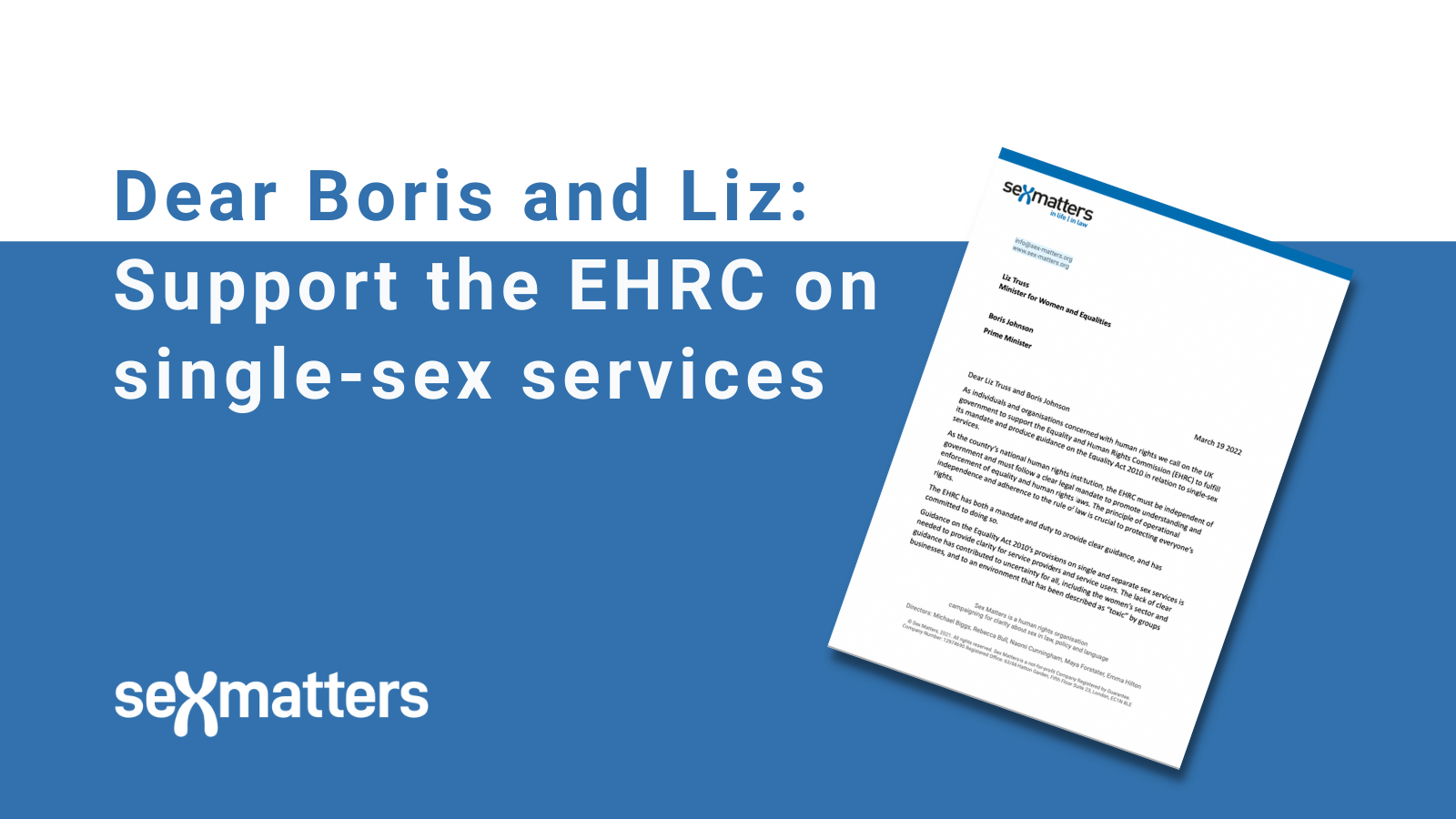Human-rights campaigners call for new statutory guidance on single-sex services

Over the past week the Women’s Aid Federation and the Women’s Resource Centre have released strong statements defending single-sex services. They follow the example of nia, which was the first women’s refuge provider to openly and proudly defend single-sex services. Sex Matters supports and applauds the leadership taken by the CEOs and trustees of these women’s charities to stand up for their missions. It shouldn’t have to take this much courage.
What is needed is clear statutory guidance from the EHRC which clarifies what “single-sex” services mean, and how the law supports them.
Today we are publishing an open letter to Prime Minister Boris Johnson and Women and Equalities Minister Liz Truss, signed by women’s sector leaders, equality lawyers, academics and activists calling on the government to support the EHRC to do its job and produce new, clear statutory guidance on single-sex and separate-sex services.
We are concerned by the letter of 18th February from the Minister for Women and Equalities, Liz Truss, to the Chair of the EHRC, Kishwer Falkner, which was leaked to the “i” newspaper. The Minister directs the commission to produce guidance that is “aligned with the Code”, rather than with the Equality Act 2010, and appears to suggest that the government would not support the EHRC in laying any amendment to the Code before Parliament.
This undermines the EHRC’s independence. Guidance issued by EHRC should be grounded in statute and case law, and not influenced by political expediency or pressure from interest groups.
Signatories include Ian Acheson, Former Chief Operating Officer of the Equality and Human Rights Commission, Nimco Ali OBE, Joanna Cherry QC MP, Frances Crook OBE, Karen Ingala Smith, Chief Executive of the Nia Project, Vivienne Hayes, CEO of the Women’s Resources Centre, Pragna Patel, co-founder of Southall Black Sisters, and Robert Wintemute, Professor of Human Rights Law at King’s College London.
The letter calls on the Minister to make it clear that the Government does not seek to constrain the EHRC in pursuing its mandate. The Government must commit to considering any amendments to the Codes of Practice that the EHRC proposes, following a proper process of publication and consultation on its new guidance.
